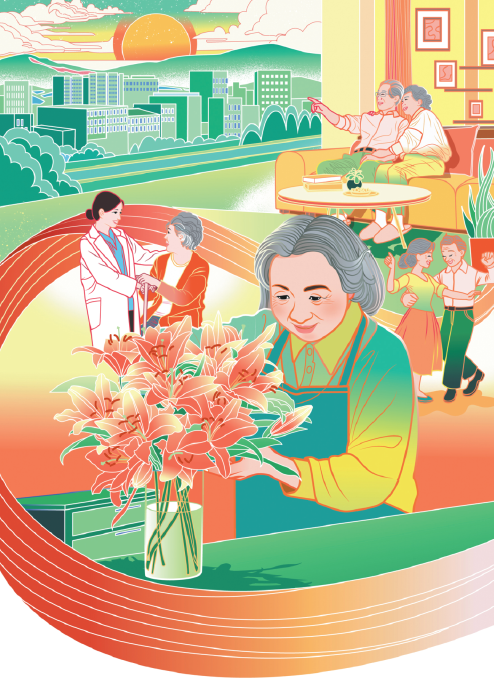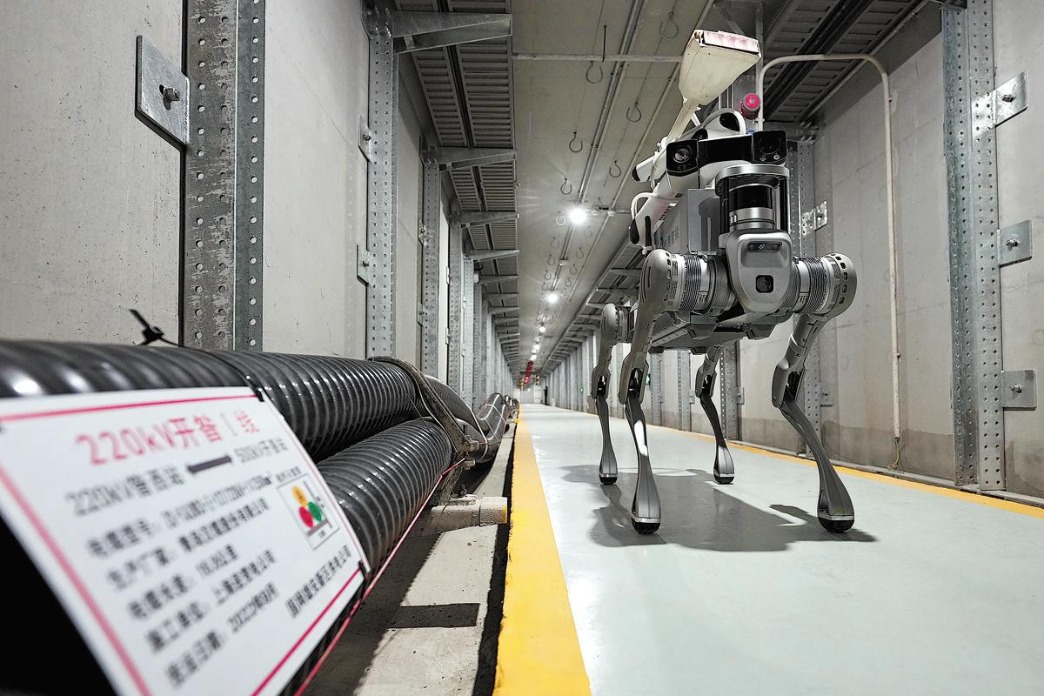Senior care services to be expanded
Guideline calls for improvements catered for elderly as nation tackles aging population
By CHENG SI | China Daily | Updated: 2025-04-03 08:41

China will further optimize public services for elderly people to make them more affordable, sustainable and comfortable, according to a guideline released in January.
The Central Committee of the Communist Party of China and the State Council, China's Cabinet, released the guideline on improving elderly care services to address issues surrounding the nation's rapidly aging population.
The latest figures from the Ministry of Civil Affairs show that as of the end of 2023, China had 297 million people age 60 and above, accounting for 21.1 percent of the nation's total population. Among them, 217 million were above the age of 65, highlighting the urgent need for an increase in the allocation of resources for elderly care services.
The guideline says the nation will build up an all-around services net covering the elderly living in rural and urban areas, and enrich elderly care services to ease the burden on families. The guideline sets the target of "basically finishing the establishment of the elderly services net" by 2029 and better improving the net by 2035 to ensure all elderly citizens have access to basic elderly care services.
Elderly care services will be more "down-to-earth", according to the guideline, with efforts made by authorities to improve county-level, township and village elderly care services to ensure every single senior is covered by basic elderly care services in the near future.
The services covered for improvement in the guideline not only include day care and rehabilitation, but also entertainment and social events.
The latest policy action comes at a time when families are increasingly feeling the burden of caring for elderly relatives.
"It really needs time and effort to take care of the elderly," said Lin Yan, a 32-year-old teacher in Beijing. "My grandpa who is 75, stayed with me in Beijing in November and lived in my house for a week, and I wasn't prepared for all the extra accommodations I needed to make to meet his needs. Even the small things like needing a stool for the shower so that he wouldn't slip."
She said she has concerns about her parents' welfare when they retire as she is far away from where they live in the eastern province of Jiangxi. "Chinese people have some traditional views that children are not filial if they don't take care of their parents in their twilight years.
"We hope that the public elderly care services in our hometowns will be improved in the near future to ease family burdens," she said.
According to the guideline, nonprofit and charitable nursing homes will be made available to the elderly in financial difficulty and those with limited living ability or with disabilities. The elderly can choose to live at affordable or premium nursing homes based on their budgets and personal needs.
Enriching elderly care services in the countryside is also stressed, with local authorities required to set up a mechanism to regularly visit or offer emergency services to seniors living in rural areas whose children work outside of the village, and seniors with disabilities or losing their basic living ability.
Townships and villages are encouraged to introduce nursing service companies from cities to operate in rural areas, with the aim of balancing the development of elderly services between the urban and rural areas, the guideline said.
The guideline also highlights the importance of developing the "silver economy" by enriching products and services tailored specifically for seniors to unleash their consumption power. Tourism destinations are encouraged to offer healthcare and elderly care services to increase their popularity among the aging population.
In addition to increasing financial and policy support to improve elderly care services, the government will also channel more efforts into producing related industry professionals and professional standards.
According to the guideline, local authorities can take explorative steps to establish elderly care service majors at designated vocational colleges or schools.
Wu Liduo, an official from the Ministry of Human Resources and Social Security, said at a recent news conference that cultivating talent is key to tackling the aging problem and offering diversified and comprehensive services to the elderly.
He said in recent years the ministry has guided vocational colleges to set up majors such as rehabilitation and health and social care, and has cooperated with other central departments to organize skills competitions for nursing and care workers and students to show their skills.
"In the latest amended national profession dictionary in 2022, nursing worker, healthcare worker and assessor of elderly living ability gained official recognition with specific national job standards," he said, adding that the ministry will work with the Ministry of Civil Affairs to establish a skills evaluation mechanism for people engaged in elderly care services, and produce more skilled and professional workers based on the market and seniors' practical needs.
chengsi@chinadaily.com.cn
























